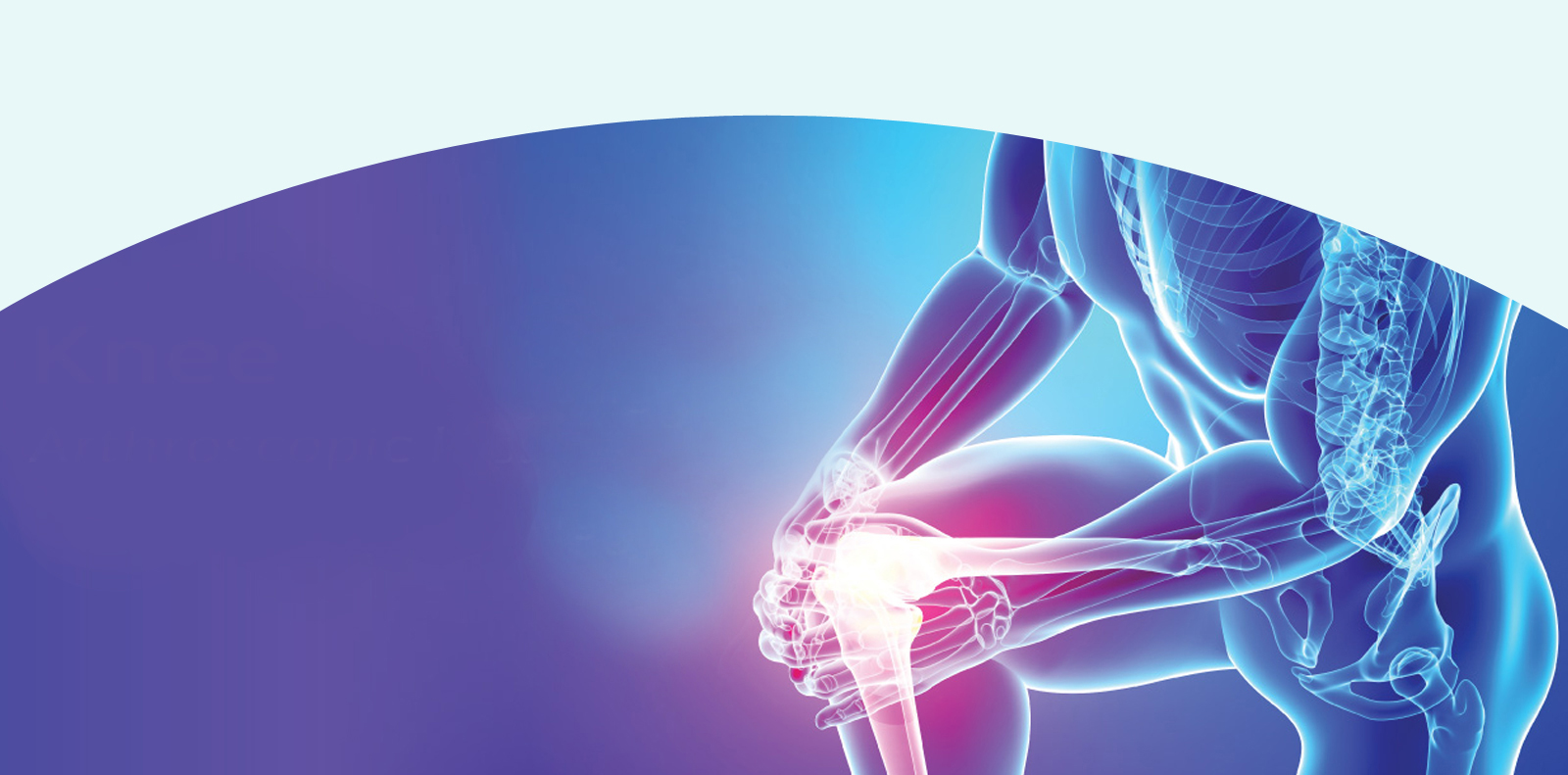Degenerative Arthritis is the fate of mankind, only the extent of involvement differs from one individual to another. Arthritis is a reality, which needs to be understood and accepted. Effects of age are visible on our skin, graying of our hair and our diminishing sight. Similar changes are taking place in our joints. The difference is that changes in joints are taking place without being visible to our eyes, hence accepting them is a little difficult. The cartilage of the joint, which is well congruent in younger years, becomes eroded and irregular as the age progresses. The body reacts to this change and thus excess bone formation takes place, which forms Osteophytes (These are soft burned bone spicules within the joint), synovial fluid is collected and joint becomes swollen.
Knee joint is affected more as 1) while walking knee suffers from
maximum stress-bearing, 2) in our population varus or inward
bending deformity of the knee is common due to genetic predisposition. Thus more forces are concentrated on the inner part of the knee while bearing weight. This damages the cartilage of the inner part of the knee faster.
If you are taking many painkiller tablets, not able to walk well, are not able to perform your daily routine comfortably, denying that you have a problem, is not a solution. Painkillers of Ayurvedic, Homeopathic or Allopathic origin are not at the answer. These are only temporary methods. They expose you to the risk of gastric ulcers and a much serious problem of kidney damage. Singh et al have reported in the America Journal of Medicine (105) 1998 that 1,07,000 patients are admitted annually for medicine-related intestinal complications as a result of pain medication intake. All pain-relieving tablets cause kidney damage for sure. In rare cases even as little as 6 tablets can cause irreversible kidney damage, forcing one to go for repeated dialysis and kidney transplant.
Common symptoms fo arthritis are painful knee or hip joint and disturbed walking and limping. Common symptoms of knee arthritis are Pain, Swelling, Locking, and Inability of the knee joint. Pain is caused by the stretching of ligaments. Commonly encountered arthritis are Degenerative Arthritis, Rheumatoid Arthritis, Sero-negative Arthritis, and Gouty Arthritis.
The conservative management starts with awareness about arthritis, the use of wedges in shoes & braces and only occasional pain-relieving medicines. Amongst pain-relieving medicines NSAIDs (brufen, voveran, nimulid, etc) are best avoided. Paracetamol is a safer pain medicine. The first step methods are weight reduction and pursuing precautions like avoiding squatting. Kneeling or sitting on the floor. Stair climbing should be minimized. Weight reduction is an important strategy. Physiotherapy is important as strong knee muscles reduce the strain on the joint cartilage, Heat therapy, and IFT/Ultrasound are methods of physiotherapy, which help reducing swelling of the inflamed joints.
You need to take arthritis seriously when discomfort starts in walking or taking stairs when you need to accept regular pain medicines, when you become overweight when pain shuffles from one knee to other. You should consider surgery when arthritis is moderate to severe and when wear of joint is demonstrable by X rays. This is visible by weight-bearing X rays of knee joints.


